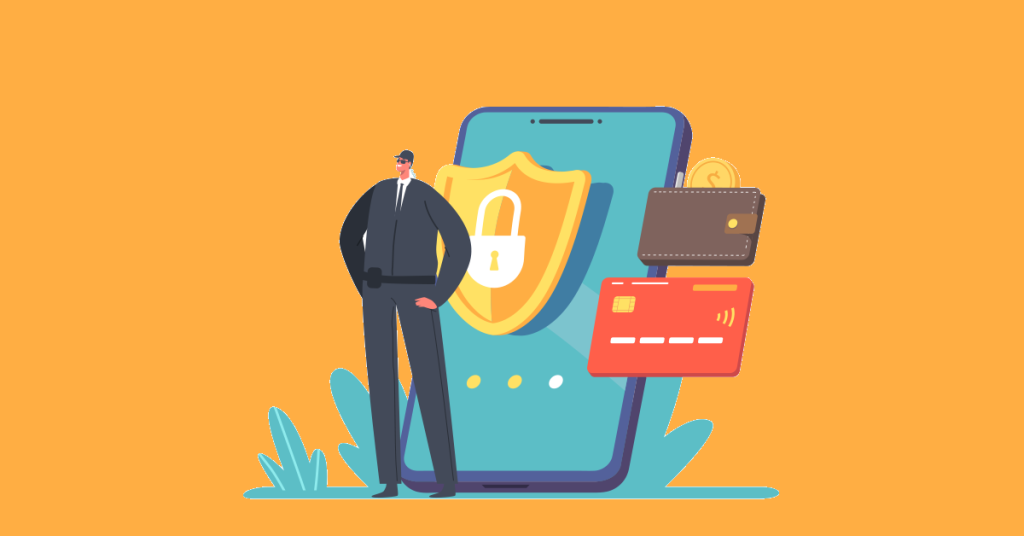In today’s hyper-digitized world, social media has become far more than a place to share selfies and connect with friends and acquaintances, near or far. Now, these channels are used to influence the masses, and create and promote a brand’s ethos and offerings.
Over recent years, brands have been experimenting in numerous ways, all with the intention to engage with their following and attract new consumers via innovative means of expression and organic promotion. Many popular online behavioral trends (such as TikTok dances) are being leveraged by companies to skyrocket brand awareness.
Suffice to say that social media channels have become vital to businesses, and have become an integral (and often, sole) part of their marketing strategies.
Such widespread use of (and reliance upon) social media leaves businesses vulnerable to security breaches of sensitive data, customer data, and to brand hacking, just to name a few.
As we are in the throes of transitioning back to work after the pandemic, it’s the perfect time to give your brand’s social media securities the once over. To protect the data and security of your brand, here is a guide for securing your brand’s social media accounts and customer data.

Potential risks to be aware of
Before we get stuck into how to protect your brand online, let’s cover the potential risks we are trying to mitigate.
Human error
As much as we try to implement technologies to increase efficiency and avoid errors, we can never fully mitigate the risk of human error. Mistakes happen, and depending on the nature of the mistake, in the online world, they can potentially pose significant threats to your brand.
Regarding cybersecurity, human error can also involve insufficient physical security measures being adhered to regarding the protection of spaces that house sensitive data. Regardless of the access control type your business utilizes, it’s vital to be aware of the shift towards integrating physical and cyber security strategies, and how it can exponentially increase protections.
According to Verizon’s 2022 Data Breach Investigations Report, a mind-boggling 82% of data breaches involve an element of human error – a stark representation of just how vital it is for businesses to account for this risk and implement sufficient training and processes.
Common human errors include:
- Clicking on suspicious links
- Connecting to third-party applications
- Oversharing on social media channels
- Incorrectly-stored passwords
- Handling data carelessly, such as sending sensitive data to the wrong recipient
- Allowing an unauthorized person to access a secure company device
Phishing attacks
Phishing is when a hacker attempts to trick users into revealing sensitive data by getting them to click on a fraudulent message that appears trustworthy.
When cyber attackers succeed in stealing sensitive information such as credit card numbers and login credentials, it can put your company at significant risk.

Brand hijacking and imposter accounts
When businesses fail to secure their brand name across all social media platforms, they open themselves up to brand hijacking and imposter accounts that could negatively impact their business’s reputation. Without brand presence across all channels, it can also make it difficult for potential customers to find you.
There’s nothing to stop an imposter creating a social media account and pretending to be representing your brand, and the chances are, their content will not be inline with your brand standards.
Malware attacks and other hacks
Malware (short for ‘malicious software’) attacks are designed to cause damage or other harm to a company’s computer systems, servers and networks. Common malware examples include viruses/Trojan viruses, worms, adware, spyware, and ransomware.
If a malware attack successfully infiltrates your systems and/or social media accounts, the damage to your brand, reputation and operating systems can be vast.
Inadvertent privacy breaches
Inadvertent privacy breaches are, by nature, entirely avoidable. Still, they are more common than you may think. Not understanding how to optimize security through the right privacy settings can expose your business to unnecessary risks.
Social media security strategies for your brand
With mitigation of the above risks in mind, here are some vital social media security strategies to keep your brand and its sensitive data safe.
Educate Your Employees
Employees can be entrusted with a great deal of responsibility, effectively holding the security of a business in their hands as they go about their duties. You may have a social media team well-versed in related security measures, and even an IT department privy to all of the risks and best-practices for maintaining brand security, but comprehensive training must extend to all employees. Using a central platform like an enterprise learning management solution gives employees, managers, and other stakeholders access to the resources they need at any time which greatly contributes to the success of your training programs.
All employees need to be trained in security best-practices, and that includes how they relate to social media use. Most people have a basic understanding of internet and social media security these days, but when it comes to employee training, be sure to deliver more advanced content. This is especially relevant for IT staff, who often pursue certifications in network security. Preparing for certifications with resources like Cisco CCNA Exam Dumps can equip them with the skills required to protect the company’s network and enforce security protocols. Ensure that all employees are well-versed in detecting and avoiding potential hacking threats, that they know to never click on any suspicious links, and generally take a zero-trust approach of their own. Verify and verify again. You should also educate them on the importance of network encryption which is one of the benefits of using a VPN.
Diligently maintain device securities
Your online accounts are only ever as secure as your devices are.
First and foremost, ensure that all company devices (and any personal devices approved for business use) have robust antivirus software installed. There are many software options to choose from, such as Norton, and they are extremely easy to install and run regular scanning rituals to check the device for any potential threats.
Keep an accurate log of all business devices and ensure that all users have up-to-date training on how to use them securely. In addition, determine what your company policy is when it comes to employees logging into brand accounts from personal devices and ensure that they are adhered to; clearly, avoiding any use of personal devices for business use is preferable.

Run a social media audit
Before you can implement a comprehensive level of security for your social media accounts, you need to get clear on exactly where the land lies.
Social media audits involve reviewing business metrics for the purpose of assessing growth and identifying the strengths and weaknesses of your brand’s social media strategies. In addition, though, a social media audit can be conducted to identify strengths and weaknesses in your brand’s online safety.
Taking stock of your current security procedures across all social media accounts is step one, and simply doing this alone can help to identify any weak spots that need to be addressed. This can also help in identifying any accounts that are being neglected and thus create further vulnerabilities if they are not being monitored. Perhaps you have inadvertently continued to grant account access to a former employee – a perfect example of the importance for regularly running security audits.
Additionally, you can use a tool such as Mention for a variety of social media management, including searching for any imposter accounts that could be misrepresenting your brand.
Many platforms do allow businesses to claim ownership over any fraudulent imposter accounts, so if you do find such accounts, be sure to follow this up.
Centralize your social media control
It is common for businesses to manage multiple social media accounts across a range of platforms, and in doing so, many employees may need authorized access. The greater this situation is scaled, the harder it can be to effectively manage, especially when it comes to security. Implementing a tool like Microsoft Entra ID for identity and access management can streamline account access and strengthen security protocols.
One effective way to manage multiple accounts and users is to connect all of your brand’s social media accounts to one central control platform.
Keeping this in mind, you can consider bringing all your social media accounts under central control.
There are a variety of social media management software solutions to choose from, such as Hootsuite and Sprout Social. Such platforms allow you to draft, publish and schedule posts across social media profiles, making it significantly easier to manage social media marketing strategies.
From a security perspective, managing all brand social media channels through a centralized system like these allows you to retain total and sole control over each account, and provide employees with one access permission only. These software also typically feature security features for added protection.
Maintain secure login credentials
The issue of login credential security has long been in contention, with many technologies being developed to increase online security for businesses and individuals.
Regardless of the methods you choose, the most important thing is to ensure that any and all company passwords remain secure and highly confidential when it comes to any unnecessary users.
Basic password security measures include:
- Always using a strong password – over 12 characters long, and including a combination of upper and lowercase letters, numbers and symbols
- Never using passwords that are easy to guess, such as company names or taglines, personal names, dates of birth, etc.
- Always setting completely unique passwords for each social media account
- Changing your passwords regularly
- Store all company passwords in one secure, cloud-based document with two-factor authentication enabled (do not store them physically or on a portable device such as a hard drive or usb) like a password manager
It’s essential to practice good password ‘hygiene,’ by regularly changing passwords, and using complex, long passwords to boost your account’s security.
Utilize two-factor authentication
Two-factor authentication works by adding an extra layer of security to the online account accessing process. In addition to the initial login credentials such as username and password, another verification of id is required to gain access.
Most commonly, a confirmation code of some sort is sent to a previously registered email address or phone number and users must input this code to gain entry to the account. Two-factor authentication is a highly effective method of protecting social media account access, and should always be utilized for added protection.
Always use private WiFi networks
Never carry out business on a public network. Regardless of the tasks at hand, using a private WiFi network goes a long way towards protecting your online activities from hackers.
Private WiFi networks are always password-protected. Some small businesses have made the mistake of utilizing a public network to keep costs down, and have paid the price. Some cybercriminals create fake WiFi networks to lure users into a false sense of security before stealing their sensitive data. Public networks can also expose your business to viruses and malware attacks. No matter how briefly you might be hopping online to tend to one of your brand’s social media accounts, make sure it is always via a private WiFi network.
Use a VPN in-office and for remote workers to access sensitive social media information and metrics to protect from unsecured networks
Use one designated email account solely for social media management
Most of us are familiar with needing to access or change the password of a particular online account, only to realize that they can’t remember which email address they set it up with. Not only can this mean that a username is hard to remember, but without access to the corresponding email address, it’s impossible to retrieve any two-factor authentication codes, and consequently, it can result in being locked out indefinitely.
Creating an email account that is solely used for social media accounts makes managing them much easier, as well as handing all relevant information and permissions over to any new social media managers that join your company.
Strictly keep all brand and personal social media tools separate
It can be not only embarrassing, but professionally damaging to find that a personal post has accidentally been uploaded to your company’s social media account. When it comes to keeping professional and personal social media management separate, this rule must go for management as well as staff.
Final thoughts on Securing Your Brand’s Social Media Accounts
When it comes to cybersecurity (and, frankly, most things) prevention is better than cure. All of these security strategies are tried and tested methods for preventing the incidence of falling prey to a cybercrime.
Ideally, social media accounts should be set up correctly for optimized security from the start. Still, many companies find themselves in the midst of a tangled web of social media accounts, all using different email accounts, far more authorized users than necessary, and generally, a big mess to clean up. It is understandable to want to bury your head in the sand, but the next attempt to breach your security could be lurking round the next corner, so don’t delay in getting your social media security management in order. By following these strategies, your brand will be in a far more secure position, freeing up more time and energy to focus on the growth of your business.

